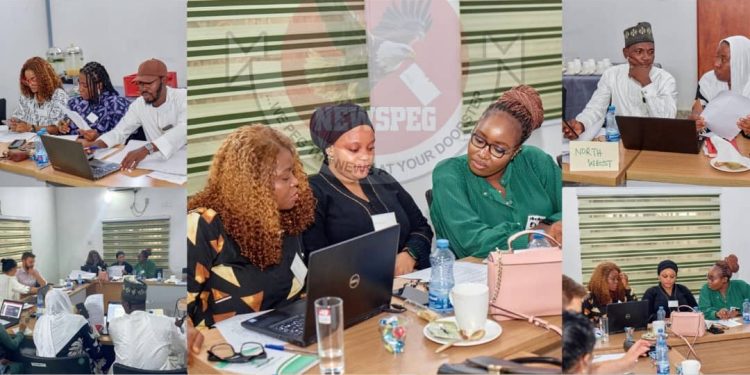By Nkechi Eze
The Civil Society Legislative Advocacy Centre (CISLAC), in partnership with Population Matters, has called for stronger government action to tackle pressing population and reproductive health challenges, particularly those confronting young girls and women. This was the central focus of a workshop convened to deliberate on Nigeria’s population dynamics, reproductive health, and inclusive education policies that would guarantee young Nigerians a fair chance to pursue their dreams and contribute meaningfully to national development.
Leading the charge from CISLAC, Abubakar Jimoh, the organisation’s Team Lead, emphasized the urgency of creating policies that directly protect vulnerable groups. He noted that population management is not only about numbers but about ensuring that every citizen, especially young people, has the opportunity to live healthy, productive lives.
From Population Matters, the Programme Lead, Jameen Kaur, Director of Advocacy and Influence and Josh Hill, Director of Research and Learning, stressed that Nigeria’s demographic realities require policies that are both forward-looking and inclusive. They highlighted that the failure to address the barriers faced by young girls would have ripple effects on education, health, and national development.
Participants at the workshop voiced concern that too many girls have had their education disrupted by early pregnancy, while their male counterparts go on to achieve higher academic and professional ambitions. “Our prayer is that government intensifies efforts in health education, especially on reproductive rights, so that girls are empowered to make informed choices and are not denied their future,” a participant stated.
The gathering underscored the importance of integrating reproductive health and rights into policy frameworks that directly affect young people. Stakeholders recommended closer collaboration with the Ministry of Education, Science, and Technology to develop policies that protect girls within the school system. They specifically advocated for frameworks that would prevent adolescent pregnancies through comprehensive sexuality education, safe sex practices, and well-informed reproductive decision-making among the youth. They stressed that the goal is not to normalize teenage pregnancy but to secure a future where young people live responsibly, make safe and informed reproductive choices, and remain healthy and productive.
“Safe sex practices, not unintended pregnancy, should guide adolescents to live healthy and productive lifestyle towards desirable well-being and sustainable socio-economic development in the future”, participants emphasized.
On broader health issues, the workshop participants stressed the need to expand the reach and effectiveness of the National Health Insurance Policy, ensuring that vulnerable groups, particularly young people, are adequately captured and benefit fully. They urged the Honourable Minister of Health to deploy his office to strengthen regulation and oversight so that citizens not only gain all-inclusive access to affordable health insurance but also to safe, quality commodities and services.
They further emphasized the imperative of making family planning commodities accessible and affordable, noting that family planning is central to the socio-economic security of households, as it helps families plan responsibly, reduce poverty, and improve maternal and child health outcomes.
The forum also drew attention to the menace of unsafe and substandard drugs in circulation, calling for stronger enforcement by regulatory authorities. They insisted that any population policy must be holistic, integrating health, education, and economic empowerment as inseparable elements of national development.
More importantly, the workshop featured representatives from Nigeria’s six geo-political zones, who spoke on the peculiar population issues bedeviling their respective regions. From the North came concerns about child marriage and its link to early pregnancies; in the South, participants highlighted urban population pressures, unemployment, and migration; while in the North-East and North-West, insecurity and displacement were noted as compounding the reproductive health and education challenges of young people. Each region’s input underscored the urgent need for context-specific solutions within a unified national framework.
In the resolutions, stakeholders reaffirmed their commitment to working with government institutions but stressed that their recommendations must be taken seriously and factored into policy implementation in the current dispensation. They called on the Honourable Minister of Health to look inward and provide decisive leadership on population-related issues, noting that Nigeria’s ability to meet its development goals will depend on how effectively it manages its demographic realities.
From the foregoing, it has become imperative for all stakeholders to drive sensitisation activities around a holistic population policy and positive behavioural change that emphasise the wellbeing of the households and quality of outcomes for children education, nutrition, healthcare, and opportunities for success, so that families themselves can make informed decisions on family size best secures those outcomes.
The workshop concluded with a collective call for urgent reforms that would safeguard the future of young Nigerians, particularly girls, while promoting equity, access, dignity, and a healthy, productive population for sustainable national development.
















